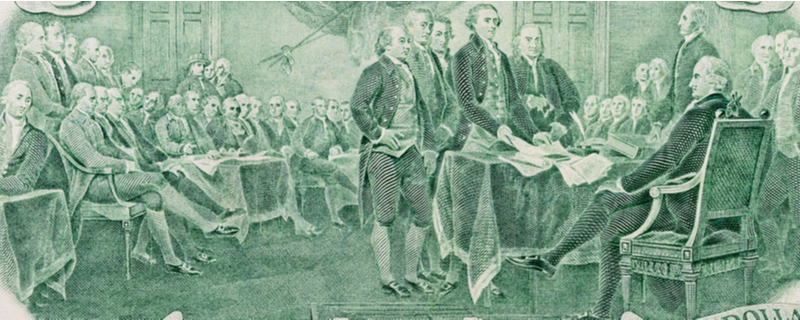Free Consultation
(314) 500-HURT100+ years of combined experience and over $200 million won for our clients in Missouri and Illinois. Contact a personal injury lawyer near you.
Free Consultation
(314) 500-HURT
In my Dave Letterman style, here’s the top 10 things most people do not know about the Electoral College.
The electoral college was created as a compromise in just four days in September 1787. The constitutional convention
delegates could not decide how the president was to be elected. So they sent the issue to the “Committee of Eleven.”
They decided a select group of appointed people would choose the president, called electors (a reference to how popes
were chosen?). Each state would get electors equal to the number of representatives and senators.
Each state’s legislature decides how it appoints electors. The framers thought this the least objectionable choice of
President selection. If no candidate gets a majority of the elector votes the House of Representatives chooses the
President.
The Framers thought electors would be looking to nothing other than what was best for the nation and be above
politics. But after Washington’s presidency, political parties started and electors as independent decision-makers
became useless.
Missouri’s Thomas Hart Benton wrote in 1824 that they “lost power over their own vote” and were picked “for their
devotion to a party.” Electors quickly became “party lackeys and intellectual nonentities,” wrote Supreme Court
Justice Robert Jackson in 1952.
Electoral college waivers in popularity – depending on if a party thinks they have an advantage using it or not.
In 1796 and elector pledged to John Adams instead voted for Jefferson. Adams won that year 71 electoral votes to 68,
in part, because Virginia split its electoral votes by districts.
After that states frequently switched between splitting votes and being winner take all in political maneuvering by
political parties. (Massachusetts changed systems in every election between 1796 and 1820). Today 48 states are
winner take all with Maine and Nebraska having a district system.
In the 1800 election, Jefferson and Aaron Burr tied electorally – and Burr was Jefferson’s running mate! It took the
house 36 votes before Jefferson won.
The 12th Amendment to the constitution in 1804 required electors to distinguish between votes cast for president and
vice president, to stop that from happening again.
In 1824 Andrew Jackson won both the popular vote and the electoral college but lost to John Quincy Adams. This was
because two other candidates took votes that cost Jackson the majority. The contest went to the House – which chose
Adams.
Winners of the popular vote lost the electoral vote in 1876 and 1888, in addition to more recent Bush-Gore and
Trump-Clinton elections. Perhaps the most famous picture of electoral college troubles is Harry Truman holding the
newspaper announcing his opponents win.
In Ray v. Blair, 343 U.S. 214 (1952), the Supreme Court held it constitutional for states to allow parties to require
a pledge to vote for the party’s nominee as an elector, and that it was not a breach of otherwise qualified
candidates’ rights to be denied this position if they refused the pledge. Blair did not want to support a candidate
advocating civil rights for African Americans.
A faithless elector is a member of the United States Electoral College who does not vote for the presidential or vice
presidential candidate for whom they had pledged to vote. That is, they break faith with the candidate they were
pledged to and vote for another candidate, or fail to vote.
A pledged elector is only considered a faithless elector by breaking their pledge; unpledged electors have no pledge
to break. There have been a total of 165 instances of faithlessness as of 2016, 63 of which occurred in 1872 when
Horace Greeley died after Election Day but before the Electoral College convened.
Nearly all have voted for third party candidates or non-candidates, as opposed to switching their support to a major
opposing candidate. Here’s a map of states that do and do not bind their electors:
As of 2017, 761 bills have been filed to change the electoral system. This included abolishing it and using a
straight popular vote starting in 1816.
The National
Popular Vote Compact is an agreement among states to cast all their electoral votes for the winner of the
national popular vote regardless of the vote in their state. This has arisen because it is so hard to amend the U.S.
Constitution.
Amending the Constitution requires a two-thirds majority in the House and Senate and ratification by three-fourths of
the states. The last time we got close to getting rid of the electoral college was in 1969 when a bill passed the
house with 30 states on board to ratify it.
But a filibuster in the Senate killed the bill and it never was passed.
The Compact bypasses Congress – but it has not taken effect yet. 15 states have entered the compact but it does not
take effect, by its terms, unless enough states representing a majority of electoral votes enter the compact.
If that happens, and states abide it, the electoral college will be bypassed. They are 74 votes shy of the majority
needed. Will the drama of this election push more states into the compact?
38 states voted for the same party in the last 5 presidential elections 2000-2016. So candidates fight over votes and
electors in relatively few states.
We often hear the election will come down to relatively few voters in few states. Sometimes this makes voters think
their vote does not matter.
Here’s a map of the US with the states’ size determined by the number of presidential campaign events in 2012.
Founder | Injury Attorney
Gary Burger has dedicated his career to standing up against bullies. The founder and principal attorney of Burger Law | St. Louis Personal Injury Lawyer has helped hundreds of Missouri and Illinois individuals and families recover th …
Years of experience: 30 years
Location: St. Louis, MO

Similar Blog Posts

BMW drivers pride themselves on the reliability, luxury and performance that the brand promises. However, even the most reputable automakers occasionally face setbacks. Recently, B... read more.

The iconic BMW 7 Series is known for its luxury and unrivaled performance. However, the series has encountered a significant setback with a recent engine recall. The recall mainly ... read more.

Recalls are an important safety measure for car manufacturers, and the BMW X1 has recently been subject to one. Whether you're an owner of this model or considering purchasing one,... read more.

This page has been written, edited, and reviewed by a team of legal writers following our comprehensive editorial guidelines. This page was approved by Founding Partner, Gary Burger who has more than 30 years of legal experience as a practicing personal injury trial attorney. Gary’s robust legal knowledge is recognized by his peers as demonstrated by his industry awards and frequent Continuing Legal Education (CLE) lectures.
NO FEES UNTIL WE WIN YOUR CASE
We offer free consultations and are available 24/7 to take your call. Live chat, text, and virtual meetings are available.
or call us at